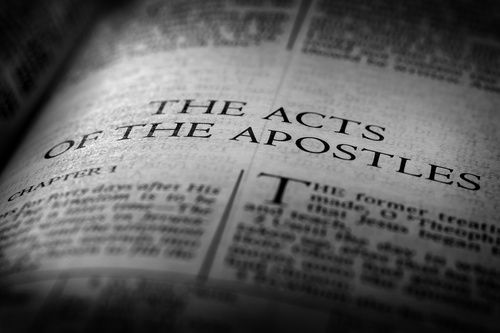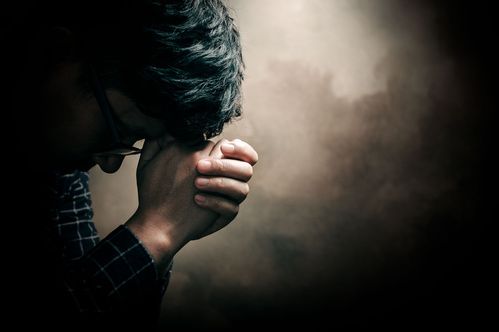Complete Statement of Faith.

The Holy Bible
The Holy Bible, and only the Bible, is the authoritative Word of God. It alone is the final authority in determining all doctrinal truths. In its original writing, it is inspired, infallible and inerrant (see 2 Tim. 3:16; 2 Peter 1:20, 21; Prov. 30:5; Rom. 16:25, 26).
Trinity
There is one God, eternally existent in three persons: Father, Son and Holy Spirit. These three are co-equal and co-eternal (see 1 John 5:7; Gen. 1:26; Matt. 3:16, 17; 28:19; Luke 1:35; Isa. 9:6; Heb. 3:7-11).



Jesus Christ
Jesus Christ is God the Son, the second person of the Trinity. On Earth, Jesus was 100 percent God and 100 percent man. He is the only man ever to have lived a sinless life. He was born of a virgin, performed miracles, died on the cross for humankind and thus, atoned for our sins through the shedding of His blood. He rose from the dead on the third day according to the Scriptures, ascended to the right hand of the Father, and will return again in power and glory. (See John 1:1, 14; 20:28; 1 Tim. 3:16; Isa. 9:6; Phil. 2:5, 6; 1 Tim. 2:5).
Virgin Birth: Jesus Christ was conceived by God the Father, through the Holy Spirit (the third person of the Trinity) in the Virgin Mary’s womb; therefore, He is the Son of God (see Matt. 1:18, 25; Luke 1:35; Isa. 7:14; Matt. 1:18, 23-25; Luke 1:27-35).
Redemption
Human beings were created good and upright, but by voluntary transgression fell; our only hope of redemption is in Jesus Christ, the Son of God (see Gen. 1:26-31; 3:1-7; Rom. 5:12-21).
Regeneration
For anyone to know God, regeneration by the Holy Spirit is absolutely essential (see John 6:44, 65; Gal. 2:20-21).
salvation
We are saved by grace through faith in Jesus Christ; His death, burial and resurrection. Salvation is a gift from God, not a result of our good works or of any human efforts (see Eph. 2:8, 9; Gal. 2:16; 3:8; Titus 3:5; Rom. 10:9, 10; Acts 16:31; Heb. 9:22).
Repentence
Repentance is the commitment to turn away from sin in every area of our lives and to follow Christ, which allows us to receive His redemption and to be regenerated by the Holy Spirit. Thus, through repentance we receive forgiveness of sins and appropriate salvation (see Acts 2:21, 3:19; 1 John 1:9).
Sanctification
Sanctification is the ongoing process of yielding to God’s Word and His Spirit in order to complete the development of Christ’s character in us. It is through the present ministry of the Holy Spirit and the Word of God that the Christian is enabled to live a godly life (see 1 Thess. 4:3; 5:23; 2 Cor. 3:18; 6:14-18; 2 Thess. 2:1-3, Rom. 8:29; 12:1,2 Heb. 2:11).
Jesus' Blood
The blood that Jesus Christ shed on the cross of Calvary was sinless and is 100 percent sufficient to cleanse humankind of all sin. Jesus allowed Himself to be punished for both our sinfulness and our sins, enabling all those who believe to be free from the penalty of sin, which is death (see 1 John 1:7; Rev. 1:5; 5:9; Col. 1:20; Rom. 3:10-12,23; 5:9; John 1:29).

Jesus Christ
indwells
all believers
Christians are people who have invited the Lord Jesus Christ to come and live inside them by His Holy Spirit. They relinquish the authority of their lives over to him thus making Jesus Lord of their life as well as Savior. They put their trust in what Jesus accomplished for them when He died, was buried and rose again from the dead (see John 1:12; 14:17,23; 15:4; Rom. 8:11; Rev. 3:20).

baptism
in the holy
spirit
Given at Pentecost, it is the promise of the Father, sent by Jesus after His ascension, to empower the Church to preach the gospel throughout the whole Earth (see Joel 2:28, 29; Matt. 3:11; Mark 16:17; Acts 1;5; 2:1-4,17, 38, 39; 8:14-17; 10:38, 44-47; 11:15-17; 19:1-6).

the gifts
of the holy
spirit
The Holy Spirit is manifested through a variety of spiritual gifts to build and sanctify the church, demonstrate the validity of the resurrection and confirm the power of the Gospel. All believers are commanded to earnestly desire the manifestation of the gifts in their lives. These gifts always operate in harmony with the Scriptures and should never be used in violation of biblical parameters. (See Heb. 2:4; Rom. 1:11; 12:4-8; Eph. 4:16; 2 Tim. 1:5,16; 4:14; 1 Cor. 12:1-31; 14:1-40; 1 Peter 4:10).
The Church
The Church is the Body of Christ, the habitation of God through the Spirit, with divine appointments for the fulfillment of Jesus’ Great Commission. Every person who is born of the Spirit is an integral part of the Church as a member of the body of believers. There is a spiritual unity of all believers in our Lord Jesus Christ. (See Eph. 1:22; 2:19-22; Heb. 12:23; John 17:11, 20-23).
Two sacraments.

Water Baptism
Following faith in the Lord Jesus Christ, the new convert is commanded by the Word of God to be baptized in water in the name of the Father and of the Son and of the Holy Spirit (see Matt. 28:19; Act 2:38).

The Lord's Supper
A unique time for Communion in the presence of God when the elements (the body and blood of the Lord Jesus Christ) are taken in remembrance of Jesus’ sacrifice on the cross. (See Matt. 26:26-29; Mark 16:16; Acts 8:12, 36-38; 10:47, 48; 1 Cor. 10:16; 11:23-25).
Healing of the Sick
The healing of the sick is illustrated in the life and ministry of Jesus, and included in the commission of Jesus to His disciples. It is given as a sign which is to follow believers. It is also a part of Jesus’ work on the cross and one of the gifts of the Spirit. (See Ps. 103:2, 3; Isa. 53:5; Matt. 8:16, 17; Mark 16:17, 18; Acts 8:6, 7; James 5:14-16; 1 Cor. 12:9, 28; Rom. 11:29).
Resurrection
Jesus Christ was physically resurrected from the dead in a glorified body three days after His death on the cross. In addition, both the saved and the lost will be resurrected; they that are saved to the resurrection of life and they that are lost to the resurrection of eternal damnation (see Luke 24:16, 36, 39; John 2:19-21; 20:26-28; 21:4; Acts 24:15; 1 Cor. 15:42,44; Phil. 1:21-23; 3:21).
